Dependent Personality Disorder
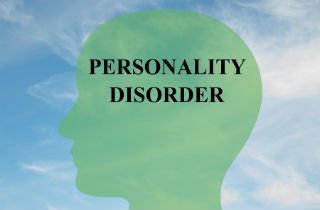
Courtesy Google Images
from Psychology Today
Dependent personality disorder is a psychiatric condition marked by an over-reliance on other people to meet one’s emotional and physical needs.
(DPD) is one of the most frequently diagnosed personality disorders. It occurs in men and women, becoming apparent in young adulthood or later as important adult relationships form.
Personality traits are enduring patterns of perceiving, relating to, and thinking about one's environment and oneself that are exhibited in a wide range of social and personal contexts. Only when personality traits are inflexible, maladaptive, and cause significant functional impairment or subjective distress are they considered personality disorders.
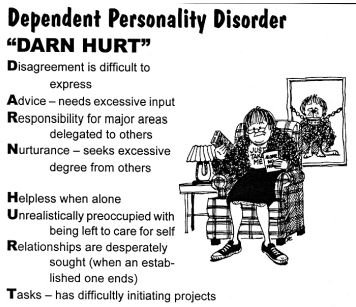
Courtesy Google Images
The essential feature of a personality disorder is a continuing pattern of inner experience and behavior that deviates noticeably from the expectations of the individual's culture and is manifested in at least two of the following areas: cognition/thinking, affectivity/emotional expression, interpersonal functioning, or impulse control.
From WebMD.com
What Are the Symptoms of DPD?
People with DPD become emotionally dependent on other people and spend great effort trying to please others. People with DPD tend to display needy, passive, and clinging behavior, and have a fear of separation. Other common characteristics of this personality disorder include:
- Inability to make decisions, even everyday decisions like what to wear, without the advice and reassurance of others
- Avoidance of adult responsibilities by acting passive and helpless; dependence on a spouse or friend to make decisions like where to work and live
- Intense fear of abandonment and a sense of devastation or helplessness when relationships end; a person with DPD often moves right into another relationship when one ends.
- Over-sensitivity to criticism
- Pessimism and lack of self-confidence, including a belief that they are unable to care for themselves
- Avoidance of disagreeing with others for fear of losing support or approval
- Inability to start projects or tasks because of a lack of self-confidence
- Difficulty being alone
- Willingness to tolerate mistreatment and abuse from others
- Placing the needs of their caregivers above their own
- Tendency to be naive and to fantasize
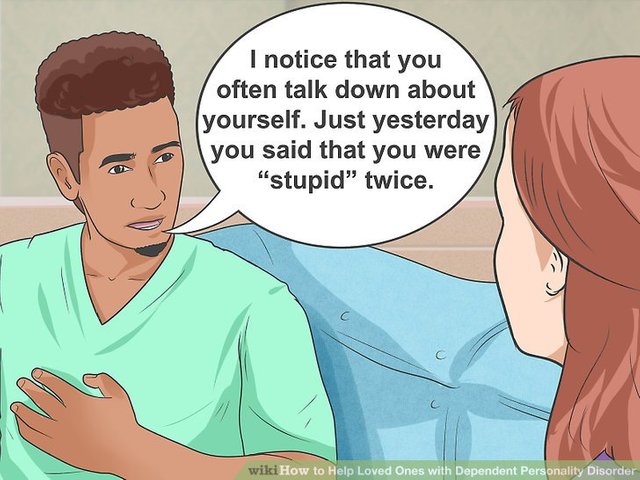
Courtesy Google Images
From HEALTHY PLACE.com
The dependent personality's clingy, submissive behavior is designed to elicit caring behaviors from others, but in many cases, it actually pushes them away. Often, even if the caregiver is abusive, the dependent personality will remain in the relationship. When a primary relationship does end, an individual with a dependent personality immediately and urgently seeks a replacement. This can make dependent personality disorder treatment very challenging._
The dependency needs of individuals with this disorder differ from those of children.
Children need the caring and nurturing of others. They need help when making decisions beyond the scope of their age and experience and may exhibit mild to severe separation anxiety when left with people other than their parents. These are all normal and developmentally appropriate in children.

Courtesy Google Images
Most kids gradually grow out of separation anxiety by adolescence and dependency on parental nurturing also diminishes during the teen years. Keep in mind, as with children, it's also normal for elderly and handicapped to have increased dependency and a need for others to assume responsibility over their lives.

Courtesy Google Images
But some kids don't ever go through the normal developmental path to independence from parents and caregivers. For these individuals, dependency on others increases over time and becomes excessive to the point that it departs markedly from the social norm and has a profound negative impact on quality of life.
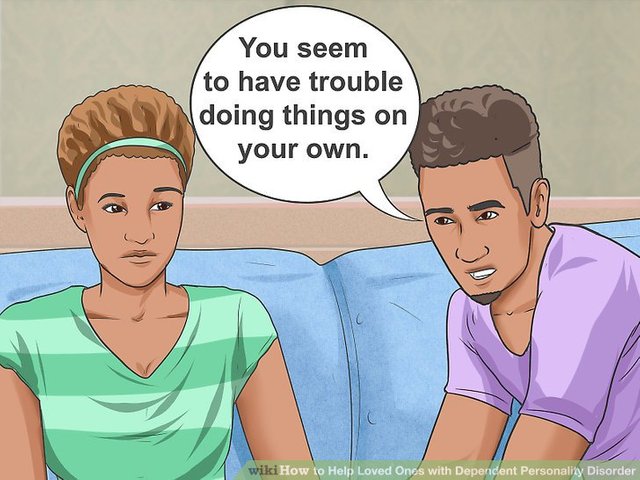
Courtesy Google Images
From Psychology Today
Treatments
Psychotherapy is the preferred form of treatment for people with dependent personality disorder. Cognitive-behavioral therapy focuses on patterns of thinking that are maladaptive, the beliefs that underlie such thinking, and resolving symptoms or traits that are characteristic of the disorder—such as the inability to make important life decisions or the inability to initiate relationships. Improvements are usually seen only with long-term therapy or treatment.
Medication may be helpful to treat any other underlying conditions. Certain types of drugs, such as antidepressants, sedatives, and tranquilizers are often prescribed for patients with dependent personality disorder to treat co-occurring conditions.
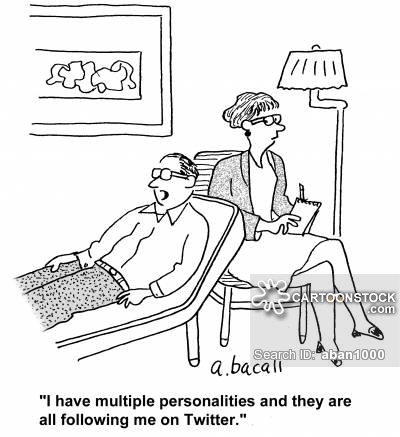
Courtesy Google Images
@originalworks
The @OriginalWorks bot has determined this post by @knowledge-trust to be original material and upvoted it!
To call @OriginalWorks, simply reply to any post with @originalworks or !originalworks in your message!
To nominate this post for the daily RESTEEM contest, upvote this comment! The user with the most upvotes on their @OriginalWorks comment will win!
For more information, Click Here!
@splosion Thank you for the vote. You are Up-Voted and Followed
thank you @splosion. I got to learn something good from you today.
I'm glad!
Good post.Upvoted already follow u.
@sweetflower You are up-voted and followed!
now I feel as a DPD, as I almost never make my own decision over my life, lol.
nice post really informative.
@hananan Are you sure you are DPD? Up-Voted
How can I am sure, I just diagnosed my self from what u've written... I almost have all the symptoms except relationship, I've never been in it because I am too afraid to start anything new. And I also don't have Tendency to be naive and to fantasize (at least that's what I think)
@hananan OK. So now that you know that you have the symptoms are you going to use a technique to get rid of it or can you live with it or do you feel normal? Are you fagile and frail physically? Are you trying to correct a seemingly "un-correctable" problem? UP-VOTED
If there's a way to heal besides taking medicine I'd like to try. Otherwise I will try to heal by my self, or at least I'll keep giving positive suggestions for my self.
@hananan Just be AWARE when you are under the influence of the disorder. If you find your emotions are under attack, backtrack and think: "Am I reacting to the disorder or someone's interpretation of me while I am displaying the symptoms". And next, don't take anything anyone says personally. It takes practice. If you learn to think critically, you will have command of the disorder. You have to defeat your impulses. UP_VOTED and happy to follow you.
I like the part where you say " don't take what someone else says personally ". That can be a challenge, kinda like a tape recorder played over in your head. Thank you for this study.
@carmenm Up-Voted and Followed! My Dad used to say: "Never let anyone more stupid than you get you upset" "If you were Deaf and Blind, would you know you've just been insulted?" Try it sometime and you'll find yourself never getting angry or insulted ever again!
Thank you for your advice, clearly it will help me.
And I am already following you
@hananan Up-Voted and Followed right back
Congratulations @knowledge-trust! You have completed some achievement on Steemit and have been rewarded with new badge(s) :
Click on any badge to view your own Board of Honor on SteemitBoard.
For more information about SteemitBoard, click here
If you no longer want to receive notifications, reply to this comment with the word
STOPInteresting post. I was wondering whether the parenting style is a contributory factor to this disorder. I have tried to bring up my daughter in such a way that she is independent. I also posted an article on psychology.
https://steemit.com/psychology/@positivesteem/is-taking-too-many-selfies-a-symptom-of-mental-illness
@positivesteem , I believe NEGLECT has a lot to do with it. I believe IMMATURITY has a lot to do with it, along with NARCISSISM and Self Centered SELFISHNESS on the part of the parent. Throw that in with a little Willful Ignorance and lack of ability to think critically along with low self worth? Perfect recipe for raising a dysfunctional, disorder ridden family. Up-Voted and Followed
What you say makes a lot of sense. I do hope parents can be more mindful of their responsibilities. Following you make.
Thank you very much for this content. I think it's very relevant that people can read about psychological topics, hopefully it's getting more and more popular so that the stigma gets less! Greetings @travellove
Thank you @travellove Anything to get the message across! Up-Voted and Followed
Nice post, thanks for sharing. A lot of traits seem to be similar to borderline personality disorder but without the violentness/loss of control. I didn't know this existed til now.
Thank you @justice4 That you have been made aware makes the post successful. Up-Voted and Followed
Hi! I am a robot. I just upvoted you! I found similar content that readers might be interested in:
https://www.healthyplace.com/personality-disorders/dependent-personality-disorder/what-is-dependent-personality-disorder/
Crazzy
Thank you @glosarlo . Very common, if you ask me.
nice post!